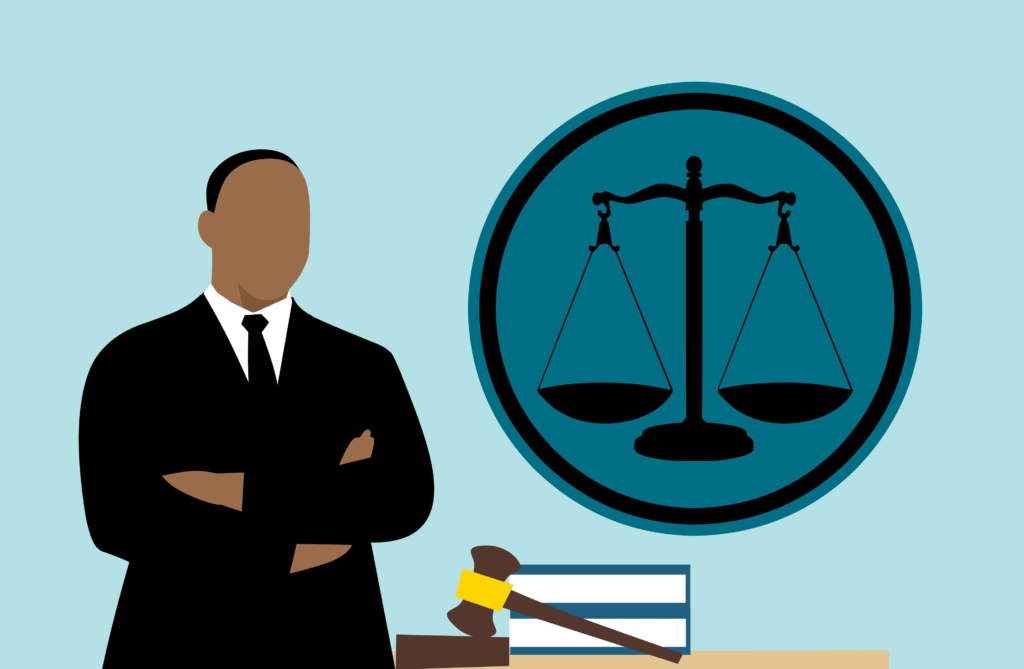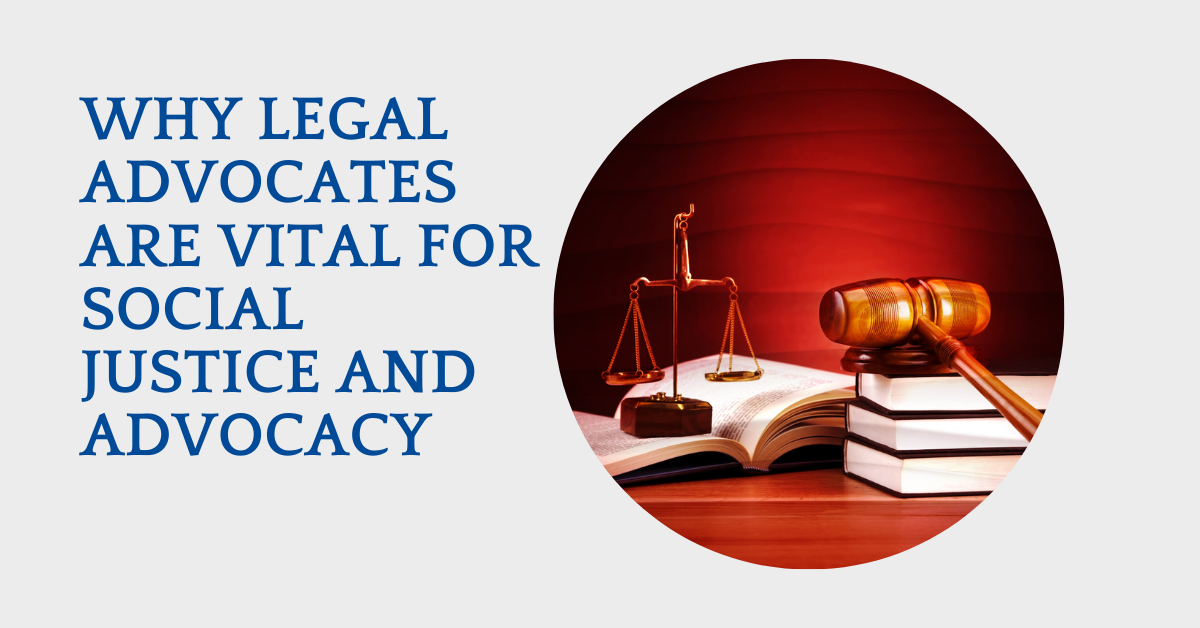Social justice and advocacy are at the heart of any society that strives for fairness, equality, and human rights. The fight for a better world often requires more than just awareness—it needs action. Legal advocates play a key role in driving these actions forward. They are often the unsung heroes behind many social justice movements, working tirelessly to defend the rights of individuals and groups who may not have a voice or the resources to fight for themselves. In this blog, we’ll explore why legal advocates are essential to social justice and advocacy efforts, and how their work helps create a more equitable society for everyone.
What is a Legal Advocate?
Before diving into why legal advocates are important, it’s essential to understand what they do. A legal advocate is a lawyer or legal professional who represents individuals, groups, or causes in legal matters. Their job is to ensure that their clients receive fair treatment under the law, and they fight to protect their rights, whether in courtrooms or through other legal means.
They might work for individuals seeking justice in personal cases, or for larger organizations and causes aiming to influence public policy and laws that affect social justice issues.
Note – If you’re looking for experienced Advocates in Abu Dhabi, Miolaw Firm offers expert legal support to help you navigate complex legal matters. Whether you’re dealing with civil disputes, business issues, or need assistance with personal legal challenges, their team is dedicated to providing professional and reliable representation. Reach out today to ensure your rights are protected and your legal matters are handled with care and expertise.
Why Legal Advocates Are Key to Social Justice
1. Protecting the Rights of Vulnerable Communities

Legal advocates are often at the forefront of protecting the rights of marginalized and vulnerable communities. These communities may include racial minorities, refugees, low-income individuals, people with disabilities, women, and others who face systemic barriers in society. Many of these groups have limited access to legal resources and may not fully understand their rights.
Whether it’s defending their right to fair housing, fighting against workplace discrimination, or representing them in cases of police brutality, legal advocates are often the only line of defense for those who are most at risk.
2. Challenging Unjust Laws and Policies
One of the most powerful ways legal advocates contribute to social justice is by challenging unjust laws and policies. Throughout history, advocates have been instrumental in pushing for changes in laws that disproportionately affect certain groups of people. For example, advocates played a vital role in the civil rights movement, fighting against segregation, voting restrictions, and discriminatory laws.
Even today, legal advocates are fighting to change laws that perpetuate inequality. They work to ensure that the legal system does not continue to perpetuate injustices based on race, gender, disability, or socioeconomic status. By challenging these laws, advocates bring attention to systemic issues and push for reforms that can create a more just society.
3. Raising Awareness and Providing Education
Advocacy is not just about fighting legal battles—it’s also about raising awareness and educating the public on social justice issues. Legal advocates often work alongside activists, organizations, and communities to bring attention to important causes. They help raise awareness about civil rights violations, environmental issues, and human rights abuses that might otherwise go unnoticed by the general public.
Through their work, legal advocates educate people about their rights and how they can protect them. They help individuals understand legal terms, processes, and their rights in different situations, making complex legal systems more accessible to everyone. By doing so, they empower people to take action and protect themselves from injustices.
4. Providing Legal Representation to Those Who Cannot Afford It
One of the most significant barriers to justice is the high cost of legal representation. Many individuals who face legal challenges—especially in social justice cases—cannot afford the services of a lawyer. This is where legal advocates make a real difference. Many legal advocates work on a pro bono basis, offering their services for free or at a reduced cost to ensure that everyone, regardless of their financial situation, has access to legal representation.
5. Influencing Public Policy and Legal Reform
Legal advocates are also deeply involved in influencing public policy and legal reforms that address social justice issues. By representing clients in court, advocates often have the opportunity to set legal precedents that can shape future rulings. These precedents can become part of the foundation for future legal reforms, helping to establish stronger protections for civil rights, workplace rights, and environmental justice.
In addition to their work in court, legal advocates also lobby for changes in laws and policies. They collaborate with lawmakers, government agencies, and non-governmental organizations to push for new legislation that can address systemic inequalities. Through their advocacy, they can help create lasting change in the legal system and society at large.
How Legal Advocates Fight for Social Justice
1. Litigation and Court Cases
A significant portion of a legal advocate’s work involves representing clients in litigation. Whether it’s defending a client’s rights in a civil rights case, fighting for better working conditions, or protecting the environment, legal advocates often use the courtroom as their platform for social change.
Court cases are one of the most effective ways to challenge discriminatory practices or policies and can set important legal precedents that affect future cases. For example, landmark cases like Brown v. Board of Education (which desegregated schools in the U.S.) or Roe v.
2. Legislative Advocacy
While court cases are an important tool, legal advocates also influence social justice through legislative advocacy. They lobby lawmakers to pass new laws or amend existing ones that protect vulnerable groups or promote social justice.
In many cases, legal advocates collaborate with advocacy groups, nonprofit organizations, and community members to organize campaigns, write policy proposals, and mobilize support for legal reforms.
3. Grassroots Organizing and Community Support
Legal advocates often work directly with communities to help them organize around important social justice issues. They provide legal guidance, help communities understand their rights, and offer support in advocacy campaigns. By working with grassroots organizations, advocates can bring attention to injustices that might otherwise go unnoticed by policymakers or the media.
Community support is essential in achieving long-term social justice goals. Legal advocates help communities build strong networks of support, empowering them to fight for their rights and work toward positive change. This collaborative approach ensures that social justice efforts are both effective and sustainable.
The Impact of Legal Advocates on Social Justice Movements
Throughout history, legal advocates have played crucial roles in advancing civil rights, gender equality, environmental protections, and many other causes. They provide the expertise and leadership needed to ensure that the law serves the interests of justice, fairness, and equality.
Conclusion
Legal advocates are vital to social justice and advocacy efforts because they bring expertise, compassion, and determination to the fight for fairness and equality. Whether they are defending individuals in court, challenging unjust laws, or influencing public policy, their work helps create a more just and equitable society. The fight for social justice is ongoing, but with the help of dedicated legal advocates, we can continue to make progress toward a better, more inclusive world.
For more insightful articles related to this topic, feel free to visit marketingexpertise.in




